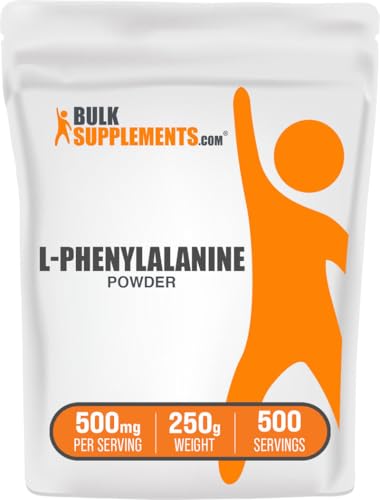L-Phenylalanine
Overview
L‑Phenylalanine (L‑Phe) is an essential, aromatic amino acid that must be obtained from the diet because humans cannot synthesize it de novo. Once absorbed, it serves as a building block for proteins and as a precursor for several neuroactive compounds, notably the catecholamine neurotransmitters dopamine, norepinephrine, and epinephrine, as well as the thyroid hormone precursor thyroxine (T4). Its primary physiological role is therefore to support protein synthesis and to fuel biochemical pathways that regulate mood, cognition, and metabolic rate.
Chemistry
- L‑Phenylalanine is an α‑amino acid with the molecular formula C₉H₁₁NO₂ and a molar mass of 165.19 g mol⁻¹.
- IUPAC name: (2S)-2‑amino‑3‑phenylpropanoic acid.
- The molecule consists of a central α‑carbon bearing an amino group (–NH₂), a carboxyl group (–COOH), a hydrogen atom, and an aromatic phenyl side chain (–CH₂‑C₆H₅).
- The L‑configuration denotes the S‑stereochemistry at the α‑carbon.
- It is a zwitterion at physiological pH (≈7.4), possessing both a positively charged ammonium group and a negatively charged carboxylate, giving it high solubility in water (≈33 g L⁻¹ at 25 °C).
- The aromatic ring contributes to its hydrophobic character, influencing membrane transport via LAT1.
Sources & Quality
- Natural dietary sources of L‑phenylalanine include high‑protein foods such as beef, chicken, fish, eggs, dairy, soy, and legumes.
- Commercial supplements are typically produced via fermentation of Corynebacterium glutamicum or Escherichia coli, which yields high‑purity L‑phenylalanine as a crystalline powder.
- Chemical synthesis from benzene derivatives is also possible but is less common due to cost and environmental concerns.
- For supplement quality, manufacturers should employ Good Manufacturing Practices (GMP) and certify identity/purity with HPLC or mass‑spectrometry analyses, confirming ≥99 % purity and absence of heavy‑metal contamination.
- Biotechnologically‑derived L‑phenylalanine is preferred for its consistent purity, lower environmental impact, and absence of allergenic residues.
Where to Buy L-Phenylalanine





Affiliate Disclosure: We earn a commission if you purchase through these links at no additional cost to you. This helps us maintain our research and provides you with the best supplement information.